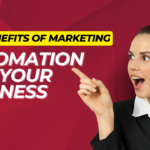Email Marketing
Email-marketing is the practice of using email to promote a business’s products or services. It can be a powerful tool for businesses of all sizes, providing a range of benefits that can help to increase customer engagement, build brand loyalty, and drive sales.
- The act of sending a commercial message via email, usually to a group of people, is known as Email-marketing . Every email that is sent to a client, whether present or prospective, might be regarded as email marketing in the broadest sense.
- It include sending adverts, making business requests, or requesting donations or purchases over email. Building brand awareness, trust, or loyalty are three major goals that are frequently pursued by Email-marketing methods.
- The phrase typically refers to sending emails with the goals of improving a business’ relationship with current or former customers, fostering customer loyalty and repeat business, attracting new customers or persuading existing ones to make a quick purchase, as well as sharing third-party advertisements.
- Together with the development of technology in the 21st century, Email-marketing has advanced quickly. Email-marketing was less successful prior to this expansion when emails were still novelties to the majority of customers.
- Gary Turk of Digital Equipment Corporation (DEC) sent the first bulk email in 1978 via the Advanced Research Projects Agency Network to about 400 prospective customers (ARPANET). He believes that this increased sales of DEC products by $13 million and demonstrated the effectiveness of Email-marketing in general.
- Email-marketing lowers operational costs for firms while giving clients more convenience and more affordable prices.




